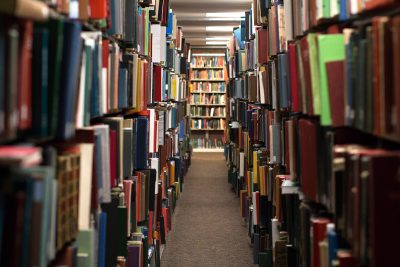
Students and faculty at Boston University are satisfied with the school’s library collections, but would like to see some changes in its infrastructure and improvements in information literacy, a survey of campus affiliates found.
The library survey was sent out to graduate and undergraduate students, as well as faculty members and received more than 5,000 responses. The survey asked respondents to provide feedback on what they did and did not like about campus libraries and other subjects, such as how well they knew how to use the resources provided to them.
Responses were turned into data and analyzed by a Library Assessment Committee made up of faculty from various campus libraries who used the data to make recommendations on how the libraries could be improved.
David Fristrom, head of the Science and Engineering Library, wrote in an email that the study showed that most patrons were satisfied with the libraries.
“The survey results show that the libraries are generally doing well in the collections and services they provide,” Fristrom wrote. “While there is always room for improvements in these areas, most patrons are satisfied with the material and services provided by the libraries.”
However, Fristrom wrote that there were numerous areas where the library could be improved, the two main areas being supporting information literacy along with infrastructure and appearance improvements.
“[T]he appearance of the physical libraries should be upgraded to improve the impression visitors form of them,” according to the report. “Improvements are also needed in the infrastructure of libraries to address problems such as leaking roofs and inconsistent temperatures. These improvements would also make the libraries more pleasant destinations for the many students who visit them on a regular basis.”
Some students’ knowledge of how to use the library seems to reveal a need for information literacy, such as Maria DiDomenica, a junior in the College of Arts and Sciences, who admitted she isn’t even sure how to check out a book in the library.
“Maybe if they put up a sign to help people out that way,” DiDomenica suggested.
Fristrom said that in the past, the study has been conducted by surveying faculty, undergraduates and graduates separately, but he believes this methodology of conducting the survey all at once has produced more efficient results. The committee hopes to continue to conduct the survey using this method every three years in the future.
Linda Plunket, an associate university librarian for graduate and research services, said the committee established three main goals after assessing the survey: process and resource improvement, having conversations with administrators on campus about the libraries’ role and figuring out what the role of the library is.
“I would say the most basic [goal] is process improvement,” Plunket said. “We really want to improve our processes and resources and our facilities based on what our users want.”
Fristrom said that in terms of information literacy, the committee is working with faculty to implement information literacy studies into BU’s general education program that will help them develop curriculum.
The committee also plans to work with administration, too, especially on improving infrastructure, Fristrom said.
“[The infrastructure] is something that the library can’t do by itself,” he said. “It depends on commitment by the administration. We certainly hope that the results of the survey help show what we need and we think they will respond, but we don’t know.”
Fristrom said the provost has communicated intentions to convene a task force on the future of the libraries.
Sebastian Calleja, a sophomore in CAS, said his only suggestion for Mugar Memorial Library would be to add more tables.
“I’m very satisfied because there are areas that are quiet so it’s very free and nice,” Calleja said.
Some students, like Christina Macarthy, a senior in the School of Social Work, said she uses the library about three hours a week, but doesn’t think it’s a top priority for students when choosing a school.
“People probably just assume that they get most of their resources on the internet, so a great library is not a top priority for them,” Macarthy said.
But Fristrom said he still believes the library remains an important place for students and faculty to research, study and have important conversations.
“As a university — a place for education and learning — the faculty and students here are part of an ongoing intellectual conversation that’s been going on for hundreds, even thousands of years, in all sorts of subjects,” he said. “The library is the place that collects that conversation and allows the current people to see what has been said before and make their own contributions. The library is a vital center for any university.”
Nathan Bindseil contributed to the reporting of this article.























































































































